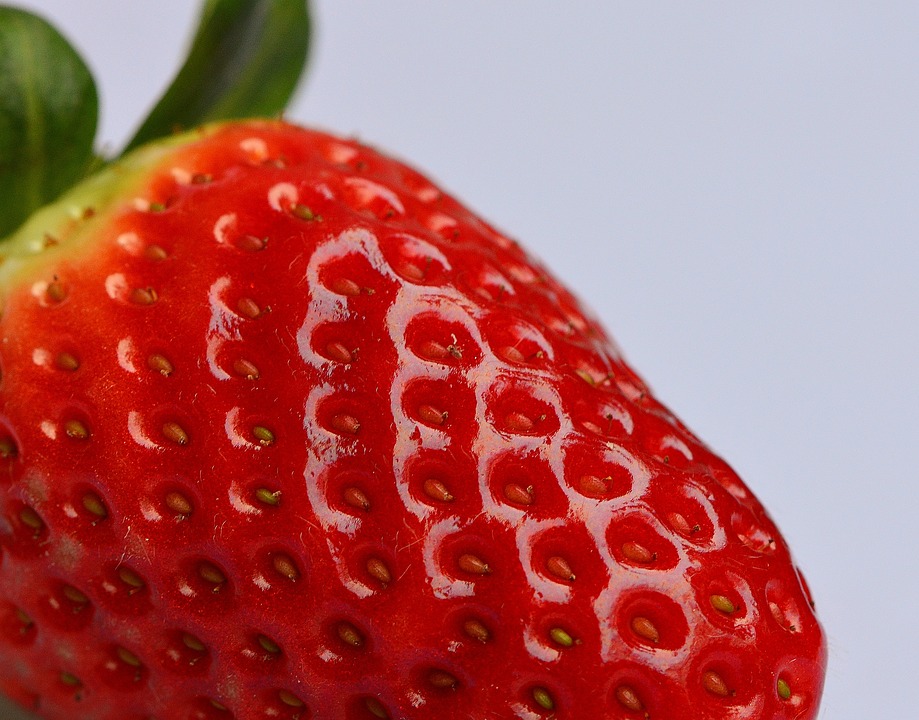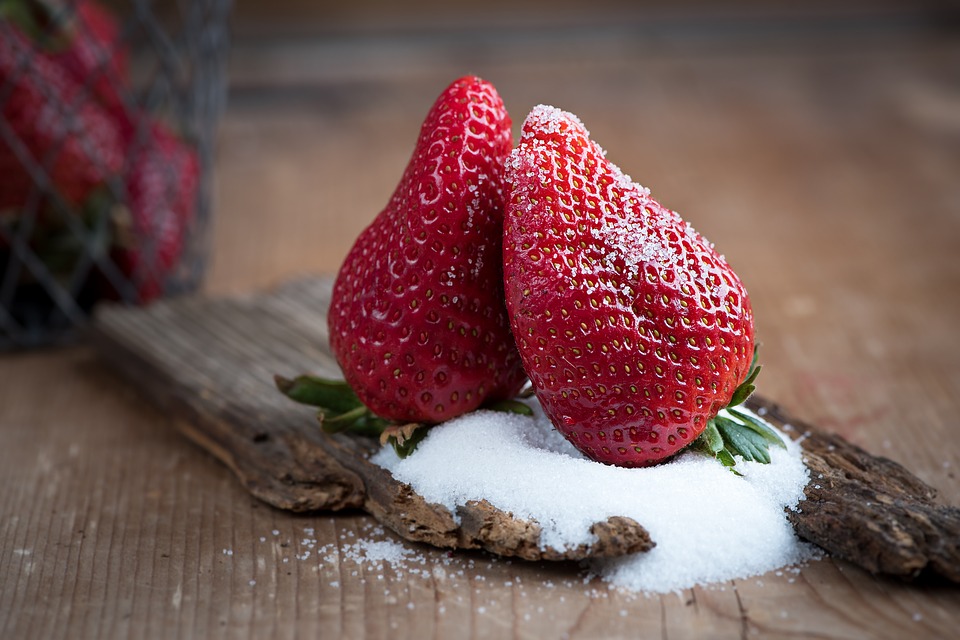This comprehensive guide provides a detailed exploration of the relationship between rabbits and strawberries, covering everything from nutritional benefits and potential risks to safe feeding practices and frequently asked questions. Let's delve into the sweet world of strawberries and rabbits, uncovering the truth behind this popular treat.
Part 1: Unveiling the Strawberry Mystery: Can Rabbits Eat Strawberries?

1.1. The Strawberry's Sweet Allure: Nutritional Value for Rabbits
- Vitamin C Boost: Strawberries are a treasure trove of vitamin C, a crucial nutrient that supports the immune system, tissue repair, and overall health in rabbits.
- Fibre Powerhouse: Strawberries contain a good amount of fibre, which is essential for maintaining a healthy digestive tract and preventing common rabbit ailments like constipation.
- Potassium Perks: Potassium, another vital mineral found in strawberries, plays a critical role in maintaining fluid balance and ensuring proper muscle function in rabbits.
- Antioxidant Advantage: Packed with antioxidants, strawberries help protect rabbit cells from damage caused by free radicals, reducing the risk of various diseases.
1.2. The Hidden Risks: Potential Dangers of Strawberries for Rabbits
- Sugar Shock: Strawberries are high in natural sugars, and while a small amount is okay, excessive intake can lead to obesity, dental problems, and digestive issues.
- Pesticide Peril: Like many fruits and vegetables, strawberries may contain pesticide residues. Choosing organic strawberries or thoroughly washing them before feeding is crucial to minimize potential harm.
- Allergic Reactions: Although rare, some rabbits may experience allergic reactions to strawberries. It's vital to introduce new foods gradually and monitor your rabbit closely for any signs of allergies, such as diarrhea, vomiting, or skin irritation.
1.3. Moderation is Key: The Importance of Balanced Feeding
- The Treat Mentality: Strawberries should be considered an occasional treat and not a staple food in a rabbit's diet. They should be given sparingly, alongside a balanced diet of hay, fresh vegetables, and a small amount of rabbit pellets.
- Dietary Balance: A balanced diet ensures that rabbits receive the necessary nutrients without an overabundance of sugars or other potentially harmful substances.
Part 2: Decoding the Strawberry Treat: Safe Feeding Practices

2.1. Frequency and Quantity: A Sweet Spot for Strawberries
- Limited Indulgence: Offer 1-2 small strawberries (approximately the size of a grape) once or twice a week. This guideline ensures that your rabbit enjoys the treat without overindulging.
- Individual Needs: Consider your rabbit's size, weight, and overall health when determining the appropriate amount of strawberries. Smaller rabbits may require less, while larger rabbits may tolerate slightly more.
2.2. Strawberry Selection: Choosing the Best for Your Bunny
- Fresh and Ripe: Always choose fresh, ripe strawberries that are free from blemishes, mould, or any signs of spoilage. A healthy strawberry is a happy bunny treat.
- Organic Option: Opt for organic strawberries whenever possible to minimize the risk of pesticide residues. This is a mindful choice for your rabbit's well-being.
- Local Bounty: Supporting local farmers and purchasing seasonally fresh strawberries is a great way to ensure the highest quality and freshness for your rabbit's treats.
2.3. Strawberry Preparation: Making Strawberries Safe and Appealing
- Thorough Washing: Wash strawberries thoroughly under running water to remove dirt, pesticides, or any traces of chemicals. This step ensures a clean and safe treat.
- Leaf and Stem Removal: Remove leaves and stems, as these can be difficult for rabbits to digest and may pose a choking hazard. This ensures your rabbit enjoys a safe and enjoyable treat.
- Size Matters: Cut larger strawberries into smaller pieces to prevent choking. This is especially important for smaller rabbits or those with sensitive digestive systems.
2.4. Post-Strawberry Monitoring: Observing Your Rabbit's Health
- Digestive Watch: After feeding strawberries, closely observe your rabbit for any signs of digestive upset, such as diarrhea, gas, bloating, or changes in appetite. Early detection is key to addressing potential issues.
- Unusual Symptoms: If you notice any unusual symptoms, stop feeding strawberries immediately and consult your veterinarian. Prompt action can prevent complications.
Part 3: Exploring Alternatives: Beyond Strawberries
3.1. Healthy Treat Options: Delicious and Nutritious Choices
- Fruit Variety: Offer other fruits in moderation, such as blueberries, raspberries, and bananas (in small quantities). Variety adds excitement to your rabbit's diet.
- Veggie Delights: Introduce vegetables like parsley, cilantro, bell peppers, and spinach. These are excellent sources of nutrients and fibre, contributing to overall health.
- Hay Heaven: Hay should be the cornerstone of your rabbit's diet, providing essential nutrients and fibre to support a healthy digestive system. Make sure there's always plenty of fresh hay available.
- Pellet Power: High-quality rabbit pellets should be offered in limited quantities as a supplementary food source. Choose pellets that are low in sugar and rich in fibre.
3.2. Toxic Foods to Avoid: Keeping Your Rabbit Safe
- Chocolate Danger: Chocolate is highly toxic to rabbits and can be fatal. Keep chocolate out of reach of your furry friend.
- Onion and Garlic Risk: These contain compounds that can damage a rabbit's red blood cells, potentially leading to health problems.
- Avocado Threat: Avocado contains a toxin called persin, which can be fatal to rabbits. Avoid feeding avocado in any form.
- Grape and Raisin Warning: These fruits contain compounds that can cause kidney failure in rabbits. Keep grapes and raisins out of your rabbit's diet.
- Nut Caution: While some nuts are safe for rabbits in small quantities, others, such as macadamia nuts, are toxic. Consult with your veterinarian about safe nut options and appropriate amounts.
Part 4: Solving the Strawberry Enigma: Frequently Asked Questions
4.1. Strawberry Safety for Baby Bunnies: A Gentle Approach
- Developing Digestive System: It's generally best to avoid giving strawberries to baby rabbits under 4 months old, as their digestive systems are still developing. This prevents potential digestive upsets.
- Gradual Introduction: If you choose to introduce strawberries to a baby rabbit, start with a tiny amount and monitor them closely for any signs of digestive upset. This ensures a safe and gradual introduction.
4.2. The Strawberry Leaf Dilemma: Avoiding Potential Toxins
- Oxalic Acid Risk: Strawberry leaves are not safe for rabbits to eat. They contain oxalic acid, which can be toxic in large quantities.
- Stem Removal: It's essential to remove all leaves and stems before feeding strawberries to your rabbit. This ensures that only the safe and digestible fruit is consumed.
4.3. Strawberry Seed Debate: A Matter of Digestive Tolerance
- Digestive Challenges: Strawberry seeds are generally safe for rabbits to eat in small amounts. However, they can be difficult to digest and may cause digestive upset in some rabbits.
- Seed Removal: It's best to remove the seeds from strawberries before feeding them to your rabbit, especially if they have a sensitive digestive system. This minimizes the risk of digestive issues.
4.4. Recognizing Strawberry Allergies: Identifying Potential Reactions
- Allergy Signs: Signs of a strawberry allergy in rabbits can include diarrhea, vomiting, gas, bloating, skin irritation, and lethargy. These symptoms may indicate an allergic reaction.
- Veterinarian Consultation: If you suspect your rabbit has a strawberry allergy, stop feeding them strawberries immediately and contact your veterinarian for diagnosis and treatment. Prompt action is essential.
4.5. The Strawberry Jam and Preserve Prohibition: Sugar and Additives
- Sugar Overload: Strawberry jam or preserves are not safe for rabbits. They are high in sugar and contain additives that can be harmful. These processed foods can lead to health problems.
- Fresh is Best: Stick to fresh strawberries as a treat for your rabbit. This ensures a natural and healthy treat option.
4.6. Strawberry Frequency: Balancing Treat and Diet
- Treat Guidelines: As a general rule, aim to give your rabbit 1-2 small strawberries (about the size of a grape) once or twice a week. This provides a balanced approach to treat-giving.
- Individual Needs: Adjust the frequency and quantity based on your rabbit's individual needs and weight. Observe your rabbit's response to determine the right amount.
4.7. Introducing Strawberries: A Gradual and Careful Approach
- Tiny Beginnings: Start by offering a very small piece of strawberry and monitor your rabbit for any signs of digestive upset. This ensures a safe introduction.
- Gradual Increase: Gradually increase the amount of strawberries you offer over several days. This allows your rabbit's digestive system to adjust to the new food.
- Treat Mindset: Always offer strawberries as a treat and not as a staple food. This maintains a balanced diet and prevents overindulgence.
4.8. Strawberries and Dental Health: Beyond the Treat
- Dental Care: While strawberries contain some fibre, which can help keep a rabbit's teeth worn down, they are not a substitute for proper dental care.
- Hay and Chew Toys: It's essential to provide your rabbit with plenty of hay and chew toys to maintain good dental health. This ensures their teeth stay healthy and well-worn.
Part 5: Conclusion: A Strawberry Journey with Your Rabbit
With this comprehensive guide, you're now equipped to make informed decisions about strawberries and your rabbit. Remember, strawberries can be a delightful treat when offered in moderation and with careful preparation. Always prioritize your rabbit's health and well-being by providing a balanced diet, safe treats, and attentive observation. Enjoy the sweet moments of sharing strawberries with your furry friend!
Everyone is watching
-

Do Rabbits Lay Eggs? (The Surprising Truth)
OTHER TYPES OF PETSThis article will unravel the common misconception that rabbits lay eggs, exploring the fascinating world of r...
-

Can Rabbits Eat Grapes? A Guide to Safe Rabbit Treats
OTHER TYPES OF PETSThis comprehensive guide will explore the safety and suitability of grapes for rabbits, providing detailed inf...
-

What's a Group of Rabbits Called? (A Comprehensive Guide)
OTHER TYPES OF PETSThis article delves into the fascinating world of rabbits, exploring the various terms used to describe a grou...
-

Predators That Hunt Rabbits: A Guide to Natural Enemies
OTHER TYPES OF PETSI've always been fascinated by the circle of life, that delicate dance between predator and prey. Growing up ...
-

Are Rabbits Nocturnal Animals?
OTHER TYPES OF PETSThe question of whether rabbits are nocturnal animals is a fascinating one, with a surprisingly complex answer...
